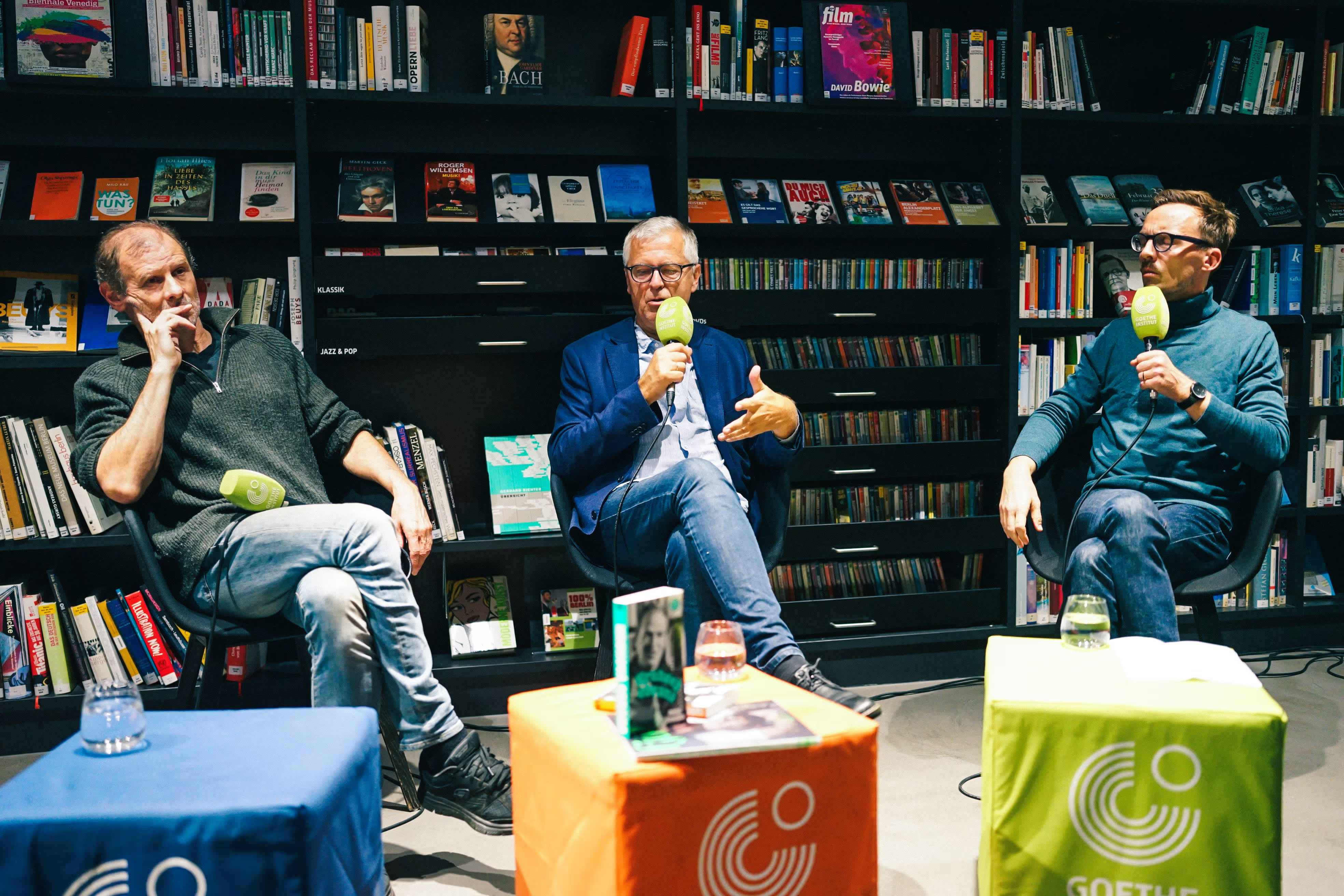ICORN in Slovakia as Bratislava signs Membership Agreement

We are proud to announce that the City of Bratislava has joined ICORN! The Membership Agreement between the capital of Slovakia and ICORN was officially signed by Mayor Matúš Vallo and Helge Lunde, ICORN’s Executive Director on September 20th, 2022.
The official signing ceremony took place on Tuesday morning in the Mayor’s office and was attended by Municipal officials, as well as representatives from the Literárny klub, and the Milan Šimečka Foundation. Mayor Matúš Vallo expressed the City’s commitment to freedom of expression and human rights, and its eagerness to join more than 80 ICORN Cities of Refuge in hosting persecuted writers and artists, so they can continue their crucial work in safety.
Bratislava’s decision to join ICORN during the 14th edition of the FJUZN Festival of Minorities held in Slovakia’s capital is also a significant one. The annual festival celebrates multiculturalism in Slovakia through a variety of workshops, exhibitions, performances, and public discussions centred around the experiences of foreigners in Slovakia. Prior to Bratislava formally becoming a City of Refuge, ICORN writers and artists regularly collaborated with the city and participated in the FJUZN festival, highlighting the existing ties between ICORN and Slovakia’s capital. Crucially, this year’s edition of the FJUZN Festival is dedicated to the theme of ‘Identities’, which is pertinent to the work and lived experiences of ICORN writers and artists.
Following the signing of the membership agreement with Bratislava, ICORN's Executive Director Helge Lunde said:
‘It is a huge privilege to welcome the City of Bratislava as a member of ICORN. Bratislava was crucial to the founding of the Pact of the Free Cities and has consistently fought against oppression and authoritarianism in today’s challenging political climate. We are excited to continue working with the City of Bratislava and the committed professionals at the Milan Šimečka Foundation, Literárny klub, the Fjuzn Festival, and others in offering refuge to persecuted writers and artists.’
Future collaboration and projects as part of Bratislava’s membership of ICORN were also discussed, including the role of the network in the Trenčín 2026 European Capital of Culture project, led by Lucia Dubačová. The local Goethe-Institut also held a public conversation with ICORN’s Helge Lunde and Slovak writer and journalist Martin M. Šimečka. The discussion focused on the role of dissidents during the Velvet Revolution and in today’s world.

Bratislava is the first Slovakian city to join ICORN and offer refuge to persecuted writers and artists, expanding the network to yet another country. Situated in the south-western part of the country, Slovakia’s biggest city is conveniently connected to other Central European capitals, such as Vienna and Budapest, which link its future ICORN residents to important professional, cultural, and social networks.



